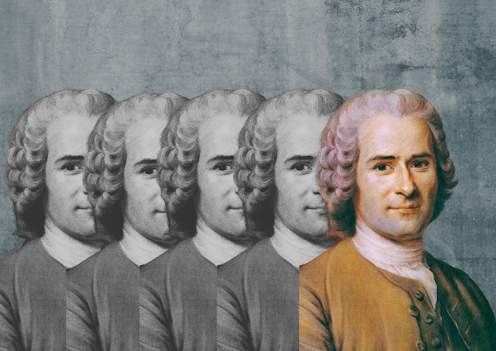the philosophy of Jean-Jacques Rousseau is profoundly contemporary
- Written by Chris Fleming, Associate Professor in the School of Humanities and Communication Arts, Western Sydney University

By any reckoning, Jean-Jacques Rousseau (1712-1778) is one of the most influential Western philosophers in history. No account of the modern era – not just modern thought – could ignore him. Few courses in political or social theory would think to omit him.
It is therefore worth coming to grips with his thought and its legacy. But like any major thinker, there are risks in summaries – some of which give us clues about Rousseau himself.
Although he is known as a social and political philosopher, Rousseau’s creative output does not resemble that of a contemporary “theorist”. He was not only a writer of treatises, but fiction, autobiographical works (such as Confessions[1] and Reveries of a Solitary Walker[2]) and musical compositions, including seven operas, some of which were notable enough to be acknowledged by composers like Gluck and Mozart.
But there is another, stranger difficulty in summarising Rousseau’s thought. It is not that his work is alien and distant to us, as might be the case with certain other thinkers. It is that his ideas reflect many of our own deepest commitments and patterns of thought. They are as close to us as the clichés heard on reality television shows and the bromides on offer in certain kinds of self-help books. They are the common coin of much political rhetoric.
It has been my experience in teaching philosophy and social theory over many years that where Plato can come across as unbearably strange, Descartes as either glib or insane, large parts of Rousseau will often strike students as mere common sense.

















